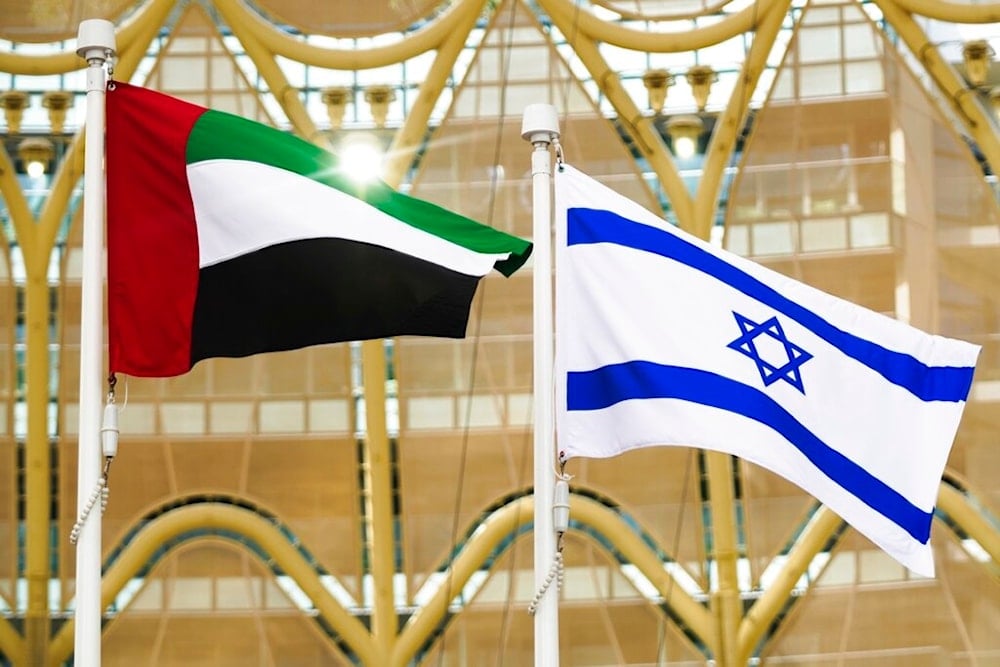UAE may downgrade ties as 'Israel' pushes West Bank annexation
The UAE is considering downgrading relations with "Israel" over its West Bank annexation plans, leading to Israeli firms being barred from the Dubai Airshow.
-

The Emirati and Israeli flags fly overhead as Israeli President Isaac Herzog gives a speech at Expo 2020 in Dubai, United Arab Emirates, Monday, January 31, 2022. (AP)
Reuters reported on Thursday that the United Arab Emirates is weighing a downgrade in its relations with "Israel" if Prime Minister Benjamin Netanyahu's government proceeds with annexing all or parts of the occupied West Bank, according to three people familiar with Abu Dhabi's internal discussions.
The UAE is one of the few Arab states to have normalized ties with "Israel," and any rollback would mark a serious blow to the "Abraham Accords", the 2020 US-brokered deal hailed as a foreign policy victory for both Donald Trump and Netanyahu.
Annexation warning
"Israel's" recent policy steps have fueled concerns that annexation may soon be on the agenda. The territory, captured in the 1967 war alongside East al-Quds, remains regarded by the United Nations and most countries as illegally occupied.
For Netanyahu, whose coalition depends on extremist factions, annexation could serve as a rallying issue before elections expected next year. Abu Dhabi has already warned that such a move would cross a "red line."
The sources indicated that while a complete rupture is not being considered, measures such as withdrawing the ambassador are on the table.
Airshow ban
Signs of strain have already emerged. According to three sources, "Israel's" defense firms were told they cannot exhibit at the Dubai Airshow in November, according to Reuters. An Israeli official and a security executive confirmed the exclusion.
"Israel's" Security Ministry acknowledged being informed but offered no details. A spokesperson for the UAE embassy in Abu Dhabi told Reuters conversations about "Israel's" participation were still ongoing.
A source inside "Israel" suggested that despite the growing rift, the government remains confident it can eventually mend ties with Abu Dhabi.
"Israel's" embassy in the UAE said the country is "committed to the Abraham Accords" and intends to keep working toward stronger bilateral relations.
Accords Jeopardized
Still, Emirati officials have been vocal about their discontent. Lana Nusseibeh, representing the UAE at the United Nations, told Reuters and Israeli media earlier this month that annexation would "jeopardise the Abraham Accords and end the pursuit of regional integration." Anwar Gargash, adviser to President Sheikh Mohamed bin Zayed, went further after "Israel's" strike in Qatar last week, calling the attack "treacherous."
The airstrike prompted an emergency summit of Muslim countries in Qatar, which issued a communique urging members to reconsider their diplomatic and economic ties with "Israel."
With Netanyahu's earlier pledge to delay annexation for four years under the Abraham Accords now expired, ministers in his cabinet are pressing him to move forward, a step that risks unraveling one of "Israel's" most strategically important regional relationships.
Read more: Netanyahu warns of Israeli isolation, calls to boost self-reliance

 3 Min Read
3 Min Read








